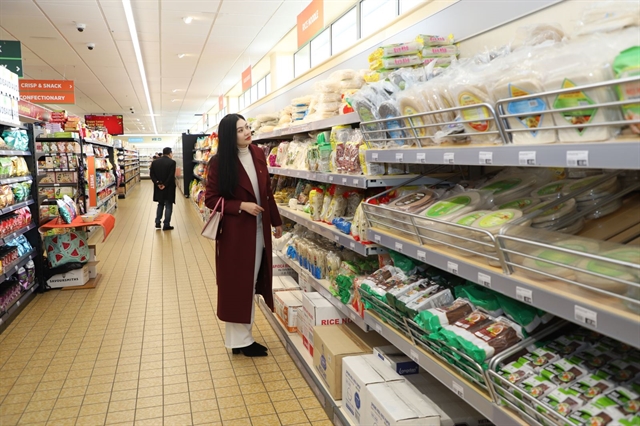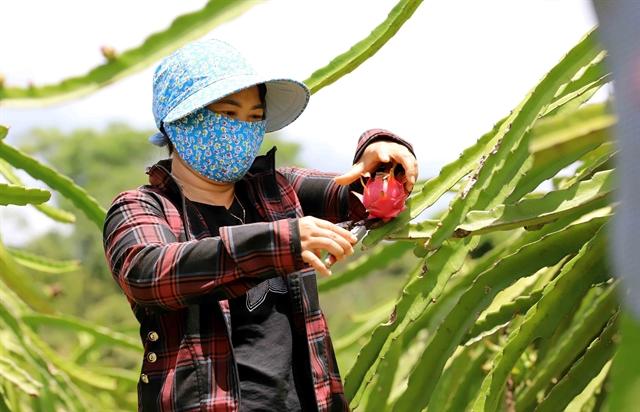The market shares of Vietnamese goods in the UK market remained modest, accounting for just 1 per cent of the UK’s $700 billion import demand a year.

Building brands is critical for Việt Nam to capitalise on opportunities from the UK – Việt Nam Free Trade Agreement (UKVFTA) to increase the presence and shares of Vietnamese goods in the UK market, experts have said.
The trade deal, which officially took effect from May 1, 2021 with a roadmap for elimination of 92 per cent of tariff lines by January 1, 2027, has significantly promoted the exports of Vietnamese goods to the UK in recent years. The Ministry of Industry and Trade’s statistics showed that the bilateral trade increased 3.3 per cent to reach US$6.8 billion in 2022 with Việt Nam’s export accounting for nearly 90 per cent.
Tạ Hoàng Lan, deputy head of the Trade Promotion Capacity Development Department under the Việt Nam Trade Promotion Agency, said that the UKVFTA helped Vietnamese goods gain a competitive advantage in the UK market compared to those of countries which had not had trade agreements with the UK such as China, India, Thailand, Pakistan and Indonesia.
Vietnamese goods were becoming more popular in the UK market with many businesses in the UK actively seeking opportunities to put high-quality products of Việt Nam into their distribution systems, a big change since the trade deal came into force, Lan said.
The market shares of Vietnamese goods in the UK market differed according to the product, but ranged around 12-19 per cent, Lan said, adding that major products included garment and textile, footwear, wood products and farm produce.
Still, the market shares of Vietnamese goods in the UK market remained modest, Lan said, adding that the UK’s import from Việt Nam accounted for just 1 per cent of the UK’s $700 billion import demand per year.
“There is significant room for Việt Nam to expand export to the UK, provided by the UKVFTA. However, the lack of recognised brands is keeping the presence of Vietnamese goods modest in the UK market,” she said.
Most enterprises in Việt Nam were not paying adequate attention to building and developing brands, or intellectual property protection in foreign markets, Lan said. While there was an increasing attention to quality, Vietnamese enterprises were not studying the market demand and requirements carefully enough.
“Developing brands in foreign markets, especially selective markets like the UK, is a difficult problem,” Lan said, adding that most Vietnamese enterprises opt to doing outsourcing and exporting under brands of importers. She urged enterprises to consider the UK a strategic market, especially when the UK was joining the Comprehensive and Progressive Agreement for Trans-Pacific Partnership (CPTPP) – a mega trade bloc made up of 11 economies including Việt Nam.
According to Đặng Phúc Nguyên, general secretary of Việt Nam Vegetable and Fruit Association, although the UKVFTA helped Việt Nam’s export of vegetables and fruits increase by 8 per cent to reach $20.9 million in 2022 and 28.3 per cent to $11.48 million in the first six months of this year, the presence of these products in the UK remained modest due to the lack of national brands and corporate brands.
Enterprises were not putting enough effort into studying the tastes of UK consumers, Nguyên said. In addition, products were mainly exported under foreign brands.
“It is necessary to develop brands to increase market shares in the UK,” Nguyên said, adding that for the vegetable and fruit industry, the participation of enterprises with strong capacity was important to establish firm brands for Vietnamese products in the UK.
As the UK was a market of high demand, the brand development must be based on increasing quality, ensuring food hygiene and safety, good packaging, and competitive prices, Nguyên said.

The focus must be on improving production technology and developing material areas to meet requirements of the import markets, not only in product quality but also in green and sustainable development, he stressed.
It would take time and effort to develop brands for Vietnamese products in foreign markets, Nguyên said, adding that brands must start from the foundation of the domestic market before going global.
Increase innovation, promotion
Hoàng Trọng Thuỷ, an expert in agriculture, said that as the UK was highly demanding for product quality, Vietnamese enterprises should focus on renovating production technologies comprehensively and developing the raw material sources to ensure quality requirements.
Vietnamese enterprises should also pay attention to ensuring the UK’s requirements in environment protection, labour, origin traceability and safety to expand exports to this market, he said.
Supports from the Government played an important role in enabling Vietnamese enterprises to expand exports to the UK, especially policies in taxes and land fees, infrastructure development, consistent and transparent policies, and trade promotions, he said.
Trade offices in foreign markets should timely provide market updates and consumer trends to enterprises so that they can build suitable production strategies, Thuỷ added.
“FTAs are not all roses.” Lan from the Việt Nam Trade Promotion Agency said. FTAs are forcing enterprises to constantly change to meet market requirements.
Lan said that to build brands, Vietnamese enterprises must consider intellectual property protection the key to establish a firm position for Vietnamese products in foreign markets. “Building brands should not be considered an expense but an investment.”
She added that establishing value chains was important to build brands, ensure quality and increase added value for the products.
Lan said that Việt Nam Trade Promotion Agency would increase promotion activities in the UK to seek trade cooperation opportunities, provide market information to enterprises and connect businesses between two sides. Promotions would also be enhanced for developing national brands and brands of products of Việt Nam’s strength. — VNS





